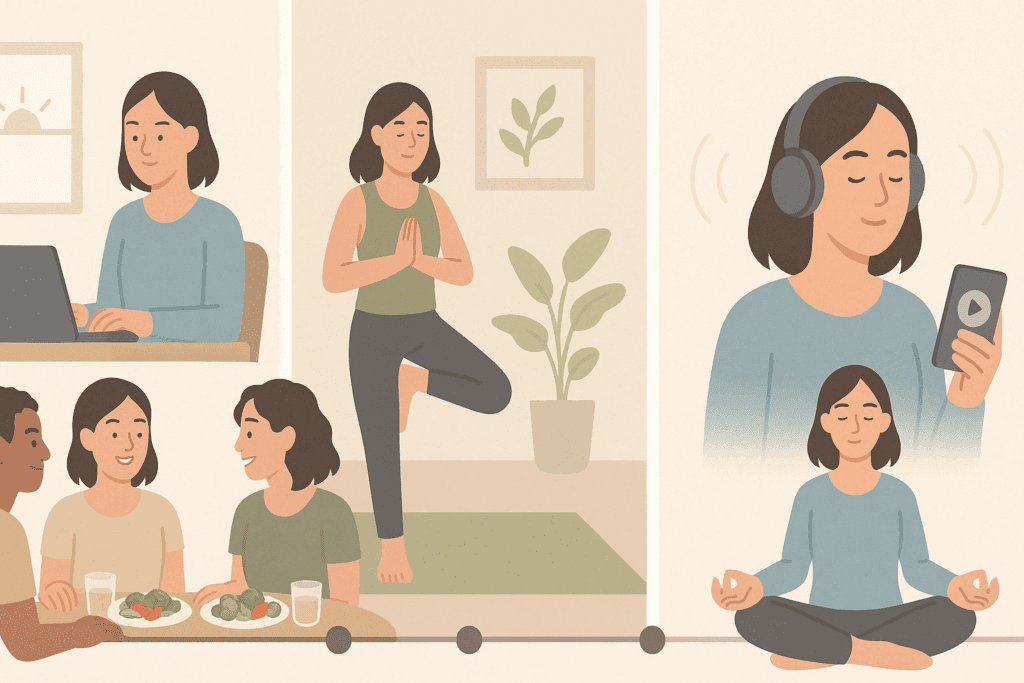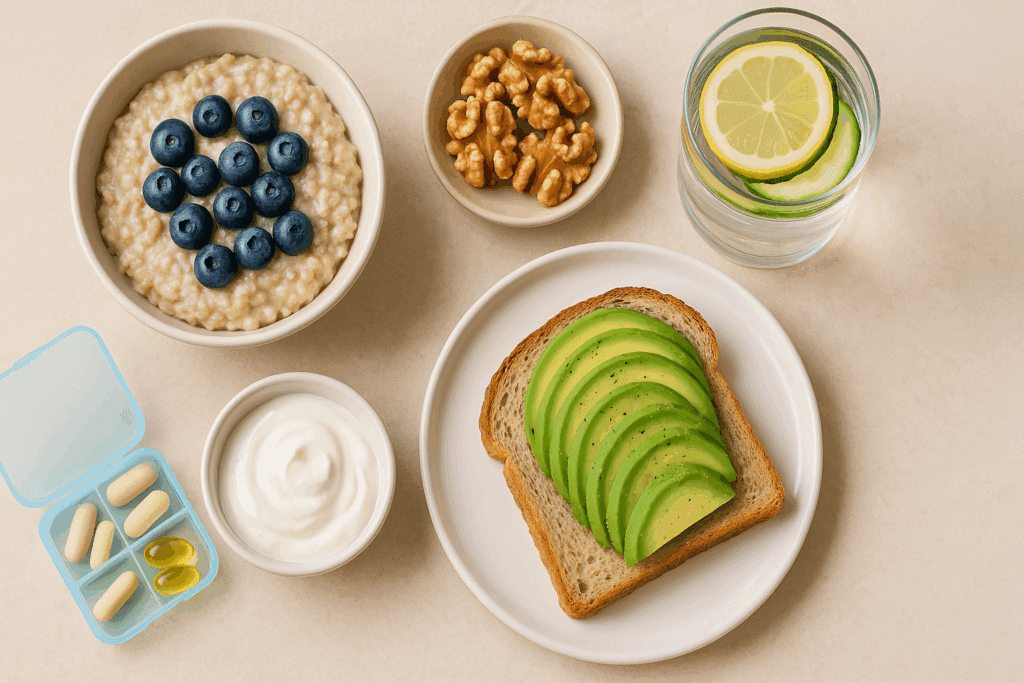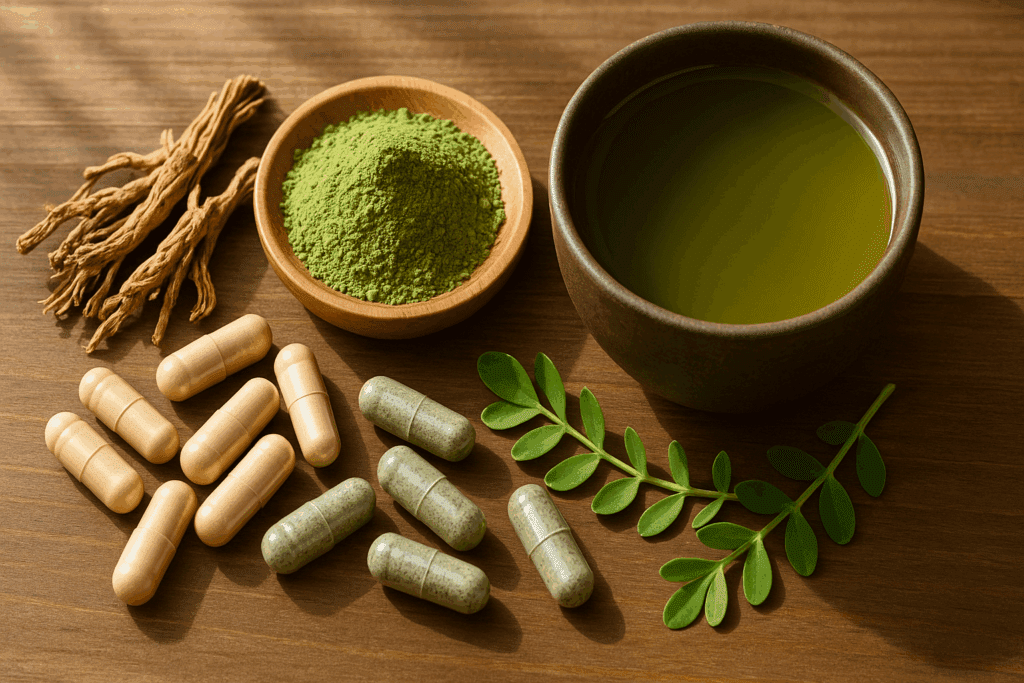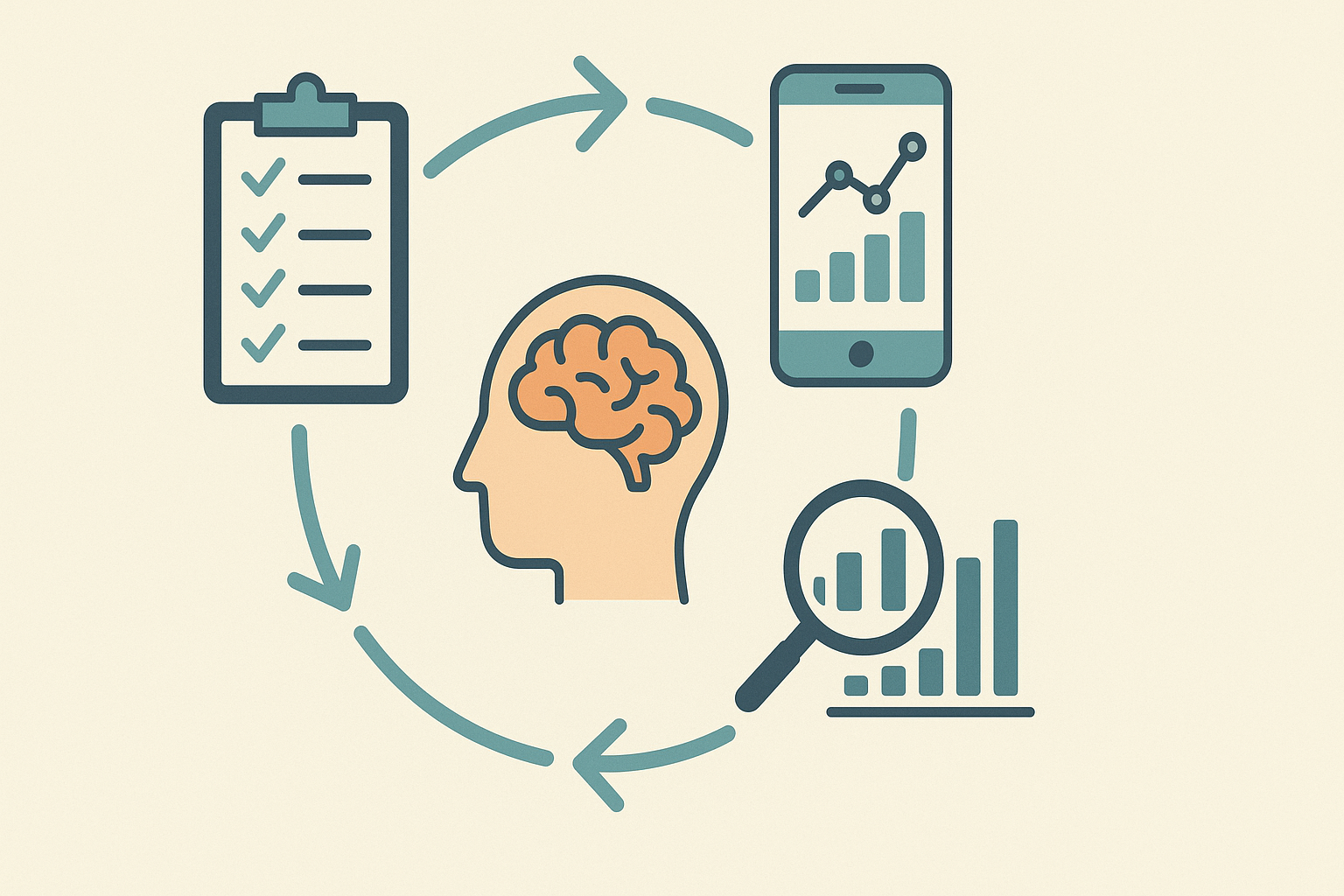The Science Behind a Mind Boost Day
In an era where cognitive overload has become the norm, planning a well-structured mind boost day is not just a luxury but a necessity. A mind boost day is designed to maximize mental performance, enhance focus, and rejuvenate cognitive resources. The concept hinges on strategic engagement of the brain through a combination of scientifically validated techniques including optimal nutrition, structured breaks, physical activity, mindfulness, and targeted supplementation. Neuroscience confirms that the brain thrives on variability and reward-driven stimuli. Integrating these principles into a single, dedicated day can reset neural circuits and increase long-term productivity.
You may also like: How to Choose the Best Brain Supplements for Adults: Science-Backed Ingredients That Support Focus, Memory, and Mental Clarity
Unlike standard wellness practices, a mind boost day goes beyond rest and relaxation. It leverages insights from neuroplasticity, the brain’s ability to reorganize and form new connections. In doing so, it fosters a foundation for better decision-making and sharper executive functioning. Emerging mind boost day reviews underscore its ability to dramatically improve clarity, mental energy, and working memory. When planned correctly, this day provides a high-yield return on time invested, especially for professionals, students, and creatives seeking elevated cognitive performance.
Understanding what constitutes an effective mind boost day requires more than anecdotal advice. It demands a blend of scientific understanding and real-world application. The intersection of cognitive science and daily routine optimization lies at the heart of this concept. With the right strategies and nutritional support, this dedicated mental reboot can become a cornerstone for anyone striving to make smarter, more confident decisions.

Structuring the Day for Maximum Mental Clarity
Creating a mind boost day is as much about timing as it is about content. Start by identifying your cognitive peak hours, which are generally within two to four hours of waking up. This is when your brain is most primed for absorbing new information, solving problems, and generating ideas. During this window, it’s vital to engage in deep work—tasks that demand focus, creativity, and critical thinking. Eliminating distractions during this period by turning off notifications and creating a minimalist workspace is crucial.
After this high-focus interval, transition into activities that promote integration and reflection. Gentle physical activity such as yoga, walking, or even dancing stimulates blood flow and enhances neurogenesis without exhausting mental reserves. By mid-day, a structured break that includes both physical nourishment and social interaction can help reset the brain’s attentional systems. It’s also during this break that many people benefit from taking vitamins for brain development, as the bioavailability of certain nutrients increases with food intake.
In the afternoon, cognitive energy naturally dips. Rather than pushing through, this is the ideal time for passive learning. Listening to educational podcasts, journaling, or engaging with complex ideas through reading can help consolidate the knowledge absorbed earlier. As the day winds down, incorporating mindfulness or meditation can help transition from mental exertion to restful introspection. These practices lower cortisol levels, enhance emotional regulation, and ultimately prime the brain for better decision-making the following day.
Leveraging Nutrition to Sustain Cognitive Energy
Nutrition forms the bedrock of any successful mind boost day. The brain consumes approximately 20% of the body’s energy, making it critically dependent on fuel that enhances neurotransmitter function and supports cellular resilience. A balanced breakfast combining complex carbohydrates, lean proteins, and healthy fats sets the metabolic tone for the day. Foods like steel-cut oats, Greek yogurt, blueberries, and walnuts are particularly rich in nutrients known to benefit cognitive health.
Throughout the day, meals should be spaced to prevent glycemic crashes, which impair focus and elevate stress hormones. Mid-morning snacks such as avocado on whole-grain toast or a smoothie with spinach, banana, and chia seeds can provide steady energy without the post-meal slump. Hydration is equally vital. Even mild dehydration can impair cognitive performance. Infusing water with lemon or cucumber can enhance palatability and encourage consistent intake.
Incorporating specific vitamins for brain development can substantially improve outcomes. B-complex vitamins, omega-3 fatty acids, and vitamin D have been shown in clinical studies to support neuroplasticity, memory consolidation, and mood regulation. These vitamins not only enhance the effects of a mind boost day but may also contribute to longer-term cognitive preservation. For best results, these supplements should be taken consistently and tailored to individual needs, ideally under professional guidance.

Exploring the Role of Nootropic Supplements
A well-planned mind boost day often includes the strategic use of nootropics—substances that enhance cognitive function. Unlike stimulants that merely offer temporary energy, high-quality nootropics support the brain’s structural and functional health. Ingredients such as L-theanine, found naturally in green tea, can enhance alpha brainwave activity, promoting relaxed alertness. This is particularly beneficial during morning work sessions or when transitioning between tasks.
Phosphatidylserine, another well-researched nootropic, supports cell membrane integrity and has been shown to improve working memory in both younger and older populations. When paired with vitamins for brain development, the synergistic effect can be profound. Adaptogenic herbs like Rhodiola rosea and Bacopa monnieri offer resilience against stress while improving mental clarity and processing speed. These are especially useful for afternoon slumps or before high-stakes decision-making.
Mind boost day reviews from users who incorporate nootropics consistently highlight enhanced focus, reduced mental fatigue, and better emotional regulation. However, it’s important to use these tools responsibly. Start with low doses and monitor individual response. More isn’t always better, and some supplements may interact with medications or underlying conditions. Always consult a healthcare provider before beginning a nootropic regimen, especially if using it as part of a broader cognitive enhancement strategy.
Enhancing Executive Function Through Mindfulness
Mindfulness is not merely a spiritual practice; it is a powerful, evidence-based tool for cognitive enhancement. Research has shown that even short periods of mindfulness can improve attention span, reduce reactivity, and enhance metacognition. These are core components of executive function, the set of mental skills involved in planning, decision-making, and goal-directed behavior. On a mind boost day, mindfulness can serve as both a launchpad and a landing strip for the mind.
Begin the day with five to ten minutes of focused breathing or a body scan meditation. This primes the prefrontal cortex and promotes the mental readiness required for high-performance tasks. Midday, a second session can help clear residual stress and sharpen post-lunch productivity. Finally, an evening mindfulness practice facilitates psychological detachment from work, supporting restful sleep and next-day preparedness.
Mind boost day reviews frequently note the transformative effects of pairing mindfulness with other interventions. The act of becoming more aware of one’s cognitive and emotional state fosters better self-regulation and resilience. Over time, this can rewire the brain to handle complex decisions with greater poise and clarity. Mindfulness doesn’t just reduce stress—it cultivates the mental space needed for strategic thought, enhancing both immediate focus and long-term cognitive growth.

Sleep Optimization and Circadian Alignment
No mind boost day is complete without addressing the foundational role of sleep. Cognitive enhancement is impossible without restorative sleep, which is when the brain consolidates memories, clears toxins, and resets neurotransmitter levels. Sleep also strengthens the synaptic connections formed during learning and experience, effectively anchoring the gains made during your mind boost day.
To maximize the benefits, it’s crucial to align daily activities with your natural circadian rhythm. This means avoiding caffeine and screen time late in the day, maintaining consistent sleep-wake cycles, and creating an environment conducive to deep rest. Investing in blackout curtains, white noise machines, or weighted blankets can significantly improve sleep quality. The final activity of your mind boost day should be a deliberate wind-down routine that includes reading, stretching, or gratitude journaling—not mindless scrolling or intense debate.
Certain vitamins for brain development, such as magnesium and B6, play a pivotal role in sleep regulation. These nutrients support melatonin production and help maintain calm neural activity. Supplementing strategically in the evening can enhance both the quantity and quality of sleep, solidifying the day’s cognitive gains. When sleep is prioritized, the full power of a mind boost day is realized, setting the stage for better decision-making and improved mental stamina in the days that follow.
Evaluating What Works: Tracking and Refinement
A truly effective mind boost day is not static. It evolves based on feedback and reflection. One of the best ways to optimize future sessions is by keeping a detailed journal or cognitive log. Documenting what worked—and what didn’t—helps identify patterns in energy levels, concentration quality, and emotional regulation. This data becomes invaluable for tailoring your strategy to your personal neurobiology and lifestyle.
Digital tools and apps can assist in tracking performance metrics such as focus duration, mood fluctuations, and sleep quality. Over time, these insights reveal which interventions yield the highest ROI. Mind boost day reviews from experienced users often stress the importance of personalization. What stimulates peak mental output for one individual may lead to overstimulation in another. By continuously refining your approach, you maximize the day’s impact without risking burnout.
In this iterative process, supplementation should be evaluated with particular care. Not all vitamins for brain development are created equal, and individual responses vary widely. Lab testing, professional consultation, and dosage adjustments are essential to identifying the most effective regimen. Likewise, journaling can uncover when mindfulness feels revitalizing versus when it feels like another item on a checklist. Fine-tuning these elements ensures that your mind boost day becomes a sustainable and rewarding ritual rather than a one-time experiment.
Frequently Asked Questions (FAQ) on Cognitive Enhancement, Memory Support, and Brain Supplementation
1. How can I tell if a supplement is truly working for cognitive enhancement?
Beyond improved focus, a legitimate supplement should produce subtle but measurable cognitive shifts. For instance, you may notice quicker recall during conversations or feel less mental fatigue during high-stakes decision-making. It’s important to evaluate performance over several mind boost days rather than expecting instant results. Track changes in productivity, memory retention, and stress resilience. For deeper insight, cognitive tracking apps or journaling methods can help map real progress.
2. Why do some people report different results in mind boost day reviews?
Variability in response stems from genetic, dietary, and lifestyle factors. For example, someone with a deficiency in B-vitamins may experience a dramatic lift in energy and clarity from methylated forms of these nutrients, while someone else may see marginal improvement. Additionally, differences in sleep quality, caffeine intake, and pre-existing brain chemistry affect outcomes. Mind boost day reviews often reflect a user’s broader wellness ecosystem rather than the supplement alone. Understanding one’s nutritional baseline and pairing it with blood testing can provide a more accurate picture of potential benefits.
3. Are there synergistic ways to use vitamins for brain development alongside nootropics?
Absolutely. Vitamins provide foundational support, while nootropics act as performance enhancers. For instance, combining omega-3 fatty acids with phosphatidylserine enhances membrane fluidity and receptor signaling—essential for long-term potentiation. Likewise, pairing vitamins for brain development like B12 and folate with racetams or adaptogens may accelerate neuroplasticity and attention regulation. This approach works best when tailored by a health professional who understands nutrient-drug interactions and your unique biochemistry.

4. What are some overlooked factors that reduce the effectiveness of brain supplements?
Hydration, gut health, and stress levels often go unnoticed. Chronic inflammation from poor diet or microbiome imbalance can impair nutrient absorption, rendering even premium mind boost day supplements less effective. Sleep deprivation and high cortisol levels also blunt executive function and memory, negating potential gains. To maximize impact, prioritize lifestyle adjustments like intermittent fasting, blue light avoidance at night, and consistent hydration routines.

5. How do brain supplement routines differ between students and older adults?
Students often seek quick recall and alertness, while older adults aim to preserve long-term cognitive resilience. Students may benefit more from choline sources, L-tyrosine, or citicoline for exam endurance. In contrast, older adults often focus on vitamins for brain development such as B-complex, vitamin D, and antioxidants like resveratrol or curcumin, which support neuroprotection and vascular integrity. Personalized approaches based on age-specific brain metabolism yield better results than a one-size-fits-all regimen.
6. Can you build a tolerance to cognitive supplements over time?
Yes, particularly with synthetic nootropics and stimulants. Your brain can downregulate receptors or shift neurotransmitter sensitivity, reducing effectiveness. Cycling protocols—where you use products for five days and pause for two, or cycle 3 weeks on and 1 week off—help maintain effectiveness. Reviewing mind boost day reviews from long-term users often reveals this practice as key to sustainable benefits. Natural adaptogens like Rhodiola and Bacopa tend to require less aggressive cycling, but moderation is still essential.
7. Are there any psychological effects associated with taking daily brain enhancers?
Yes, and they go beyond cognition. Some users report increased self-efficacy and emotional regulation—likely due to improved prefrontal cortex performance. Others feel a sense of dependence or pressure to maintain enhanced states, which can become counterproductive. Using mind boost day supplements should complement, not replace, healthy habits like mindfulness, social connection, and cognitive behavioral techniques. Balancing supplementation with psychological resilience training yields better long-term outcomes.
8. How are companies innovating in the brain supplement space?
Trends are shifting toward full-stack formulations with AI-driven personalization. Companies are developing products that blend traditional vitamins for brain development with cutting-edge compounds like noopept analogs, mitochondrial cofactors, and NAD+ boosters. Some brands even incorporate real-time biomarker tracking with wearable integrations. Future mind boost day formulations may include adaptive dosing via smart capsules, further tailoring effects based on daily brain state. Transparency and third-party testing are becoming standard expectations among educated consumers.
9. What’s a good strategy for evaluating mind boost day reviews?
Look beyond star ratings. Prioritize reviews that discuss context—why the person started using the product, their dosage, timing, and lifestyle habits. Cross-reference mentions of mind boost day with similar user profiles (e.g., busy professionals, students, aging adults). Pay attention to comments on side effects, sustainability, and whether results were validated by cognitive testing. Reviews that mention changes in stress response, mood stabilization, or verbal fluency are particularly telling.
10. What are the long-term implications of using vitamins for brain development?
When used correctly, these vitamins support not just brain performance but also protect against age-related decline. For instance, sustained use of methylated B12 and folate may reduce homocysteine levels—a key risk factor for dementia. Vitamin D supports neuroimmune interactions, which modulate inflammation and brain repair. Over decades, these interventions could contribute to better financial decision-making, emotional intelligence, and interpersonal skills. Vitamins for brain development are an investment in long-range cognitive health, not just short-term enhancement.

Conclusion: Cultivating Long-Term Clarity Through Mind Boost Days and Brain-Supportive Nutrition
Integrating a dedicated mind boost day into your routine is more than a productivity hack—it’s a lifestyle shift rooted in neuroscience, self-awareness, and strategic nourishment. Whether you’re seeking sharper memory, improved focus, or more confident decisions, this holistic approach delivers tangible benefits. Through deliberate structuring, nutritional optimization, and the judicious use of supplements and mindfulness, you create the conditions necessary for peak mental performance.
The growing number of positive mind boost day reviews reinforces the real-world effectiveness of this practice. Yet, the success of any cognitive enhancement strategy lies in personalization. There is no universal formula, only guiding principles that must be adapted to your unique brain chemistry and life context. Central to this customization is the consistent and intelligent use of vitamins for brain development. These essential nutrients form the biochemical foundation upon which all cognitive gains rest.
As you refine your mind boost day, let it become a reflection of your evolving goals, values, and self-understanding. Let it serve not just as a tool for productivity, but as a pathway to mental clarity and purposeful living. In a world driven by distraction and noise, reclaiming your cognitive space may be the most powerful decision you make. And with each mind boost day, you are not just improving your brain’s function—you are strengthening your capacity to think, decide, and thrive with intention.
Further Reading:
How to boost your brain power with supplements


